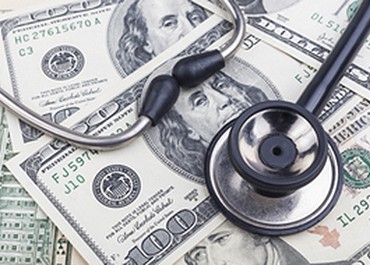Call For Free 15 Minute Consultation(212) 739-7599
Lawline Online Course: A field Manual for Involuntary Bankruptcies - Thursday, 11/5/2020 at 3:00pm EST
Make sure to Reserve your online seat - (Click Here)
Please Note: We are OPEN, continuing to represent clients and accepting new clients However, due to local directives, all meetings and interviews can be conducted via telephonic or video conferencing. Do not hesitate to contact us with any questions, concerns or requests for information. Our free 15 minute telephone consultation remains available.
Call For Free 15 Minute Consultation(212) 739-7599

A Good Bill Which Can Be Improved with Little Effort 1 2
The foremost cause of bankruptcy filings is “medical debt.” Medical salvation can yield financial ruin.
S. 2471
Recently, Senators Elizabeth Warren and Sheldon Whitehouse submitted the “Medical Bankruptcy Fairness Act of 2014” S. 2471 (the “Act”) to the Senate Judiciary Committee.
The Act removes an obstacle to relief under chapter 7 of the United States Bankruptcy Code (the “Code”) faced by consumers with above-median income, laden with “medical debt.” 3
It removes the impact of failing the “means test”: a.) case dismissal, or b.) conversion to a chapter 11 or 13 case. Chapter 7 discharges debts without debtors making any payment to creditors. Chapters 11 and 13 require payments to creditors, over time, before a discharge is granted. This long delays the “fresh start” sought through bankruptcy.
The “means test” applies to individuals with above-median incomes. It considers their expenses and the “amounts reasonably necessary to be expended.” 4 Debtors having what the Code considers excessive “disposable income” fail the “means test.” They must decide whether their case gets: a.) dismissed, b.) converted to a chapter 13 or 11, or c.) litigated over whether the “means test” is satisfied.
The Bankruptcy Amendments and Consumer Protection Action Act of 2005 (“BAPCPA”) created the “means test” to limit chapter 7’s immediate “fresh start” availability to consumer debtors. The “means test” identifies consumers whom Congress believed should pay some of their debts.
Not all “consumers” take the “means test.” Consumers with predominantly “non-consumer” debt are free of the “means test.” They can file chapter 7 cases without worrying if their bankruptcy discharge is conditioned on paying creditors. 5
The Act exempts “medically distressed” debtors from the “means test” ramifications.
In summary, medically distressed debtors are debtors or their spouses who during the three years before their bankruptcy case:
1.) incurred or paid “medical debts,” for themselves, a dependent or specified relatives, that were not paid by a third-party and exceeded the lesser of 10% of the debtor’s adjusted gross income or $10,000; or
2 ) who did not receive at least $10,000 in domestic support obligations due to the person required to make those payments having medical issues described in paragraphs 1 or 3 or had their own bankruptcy case; or
3) changed their employment status which reduced their employment income due to: a.) their own medical condition or b.) caring for a dependent’s or specified relatives’ medical condition. Relieving “medically distressed debtors” from the “means test” is warranted. The Acts’ universe of “medically distressed debtors” covers those needing its relief provided. It is necessary, laudable and deserves support.
The Act relieves medically distressed debtors from the effects of failing the “means test.” Yet, they take. Should medically distressed debtors take “means test?”
The Code exempts from the “means test” individuals with predominantly nonconsumer debts. Nonconsumer debt includes taxes and debts from failed business ventures.
The Code defines consumer debt as “debt incurred by an individual primarily for a personal, family, or household purpose.” 6 “Medical debt” fits this definition. However, should it for the “means test”‘s purposes?
The “means test” was BAPCPAs response to credit card abuse. Congress saw individuals with credit card debt from buying luxury goods filing for bankruptcy. Even if Congress’ perception was correct, those debts were accrued voluntarily.
“Medical debts” lack the volition of buying a big screen TV. Nobody wants expensive medical conditions. Frugal people go broke saving their own or loved ones’ lives. It differs from buying a big screen TV. However, not for the “means test.”
Apparently, “means test” exempting non-consumer debtors yields social benefit. This group includes entrepreneurs accepting risk for economic ventures. Our economy needs these folks. If past business failures prevented future ventures, who’ll advance the economy?
Individuals with “medical debt” also serve social functions. They give economic and emotional support to their families – “Medical debt” is “pro-life.” Healthy consumers are vital to our economy and the entrepreneurs’ market. Dead people don’t make or spend money.
Despite this social function and freedom from the ills targeted by BAPCPA, medically distressed debtors are treated like all other consumers. Their likeness to non-consumer debtors warrants similar treatment. “Medical debt” should be excluded from “consumer debt’s” definition. It lacks the volitional spending which BAPCPA penalizes.
The Act is excellent and deserves support. However, it lacks what medically distressed debtors need: full relief from the “means test.” This can and should be fixed easily.
1 © Wayne Greenwald 2014
2 This is an abridged edition of an article recently written for the “Verdict,” the journal of the National Coalition of Concerned Legal Professionals.
3 The Act has other useful provisions. This article discusses only its effect on the “means test.”
4 Based on Internal Revenue Service standards. In re Quigley, 673 F.3d 269 (4th Circ. 2012)
5 Disabled veteran consumers with debt incurred while on active duty are exempted from the result of failing the “means test.” Bankruptcy Code § 707(b)(2)(D)
6 Bankruptcy Code § 101(8)